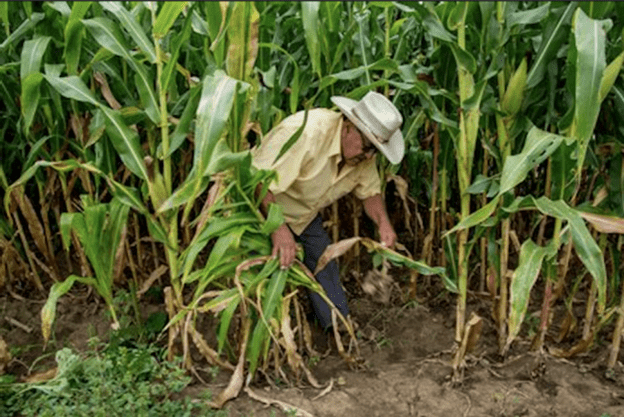
HAVANA TIMES – Mexico has taken important steps to protect native corn, even standing up to its largest trading partner, the United States, to do so. But the lack of a comprehensive legal framework in its policy towards genetically modified crops allows authorizations for other transgenic crops.
In fact, the dispute with Washington over corn exposes the regulatory gaps regarding opposition to the use of genetically modified organisms (GMOs) in Mexican agriculture.
Experts consulted by IPS concurred with the need for a better legal framework to strengthen the evaluation of GMOs.
Monserrat Tellez, a researcher at the non-governmental Seeds of Life Foundation, pointed out that GMOs appeared after the reform of agricultural and trade policies derived from the 1994 North American Free Trade Agreement (NAFTA) between Canada, the United States and Mexico.
These free trade policies, she added, harmed Mexican farmers by eliminating subsidies and opening the market to imports.
“There was already a concern about regulation. The aim of the law was to boost planting. Although there is a special regime (for corn), it is not enough. It is not only a genetic reservoir, but also includes a series of traditional cultivation practices. The basis should be the precautionary principle, we would like very careful regulation,” she told IPS.
Tellez was referring to the Law on Biosafety of Genetically Modified Organisms, in force since 2005, which specifies three types of cultivation.
Experimental plantations must be in controlled areas, protected to prevent contamination, with risk assessments and other safeguards. In pilot plantations they are optional, and in commercial plantations they do not exist.
However, Mexico lacks an effective GMO monitoring system, say the experts.
In the case of corn, it applies a special protection regime that, based on the centers of origin and diversity of corn and its wild relatives, prohibits the release of GMOs in certain areas.
Lessons learned
In December 2020, the current government of Andres Manuel Lopez Obrador issued a decree ordering the replacement of the herbicide glyphosate with environmentally friendly alternatives by Jan. 31, 2024 and putting a halt to permits for the planting of genetically modified corn and its use in the food industry.
In order to ingratiate itself with the industry, and therefore with the United States, the Mexican government softened the decree by endorsing the importation of yellow corn for industrial and animal feed purposes, but it failed to win over the United States.
During the last few months of 2022 and the first months of 2023, both governments held several unsuccessful technical meetings to resolve the conflict.
For this reason, the United States announced last August the opening of a dispute settlement panel within the framework of the United States-Mexico-Canada Agreement (USMCA), based on the chapter on sanitary and phytosanitary measures.
However, it does not mention the chapter of the USMCA, in force since 2020 and which replaced NAFTA, on biotechnology and its trade, which is the elephant in the room, since in the


